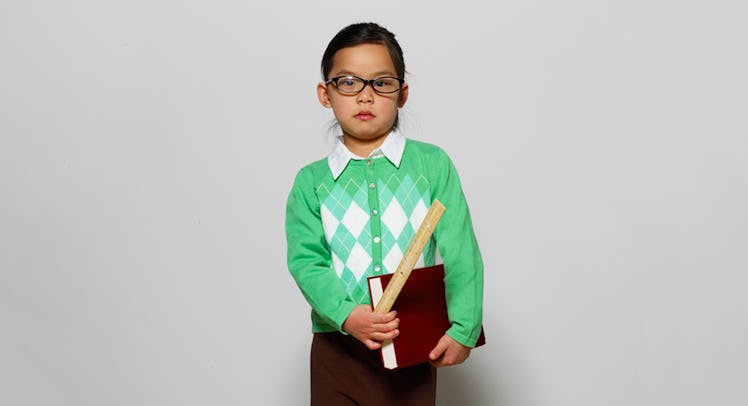Yes, Awkward Adolescent Phases Actually Build Character
That unfortunate acne might be worth it some day.

Whether it’s acne, braces, or a rough growth spurt, your adorable baby is doomed to grow into an awkward adolescent phase one day. But don’t panic. With the right support from parents and caretakers, these experiences can help kids build resilience — the secret ingredient to thriving despite adversity. Forrest Gump’s childhood leg braces really did make him a better person. It’s science.
“There are actually hardiness and resilience genes that can be turned on and off with that,” Joyce Mikal-Flynn, who teaches a course on neuroscience and post-traumatic growth at Sacramento State University, told Fatherly. And adolescence is the perfect time for those genes to get moving.
“It has to start early and often.”
Resilience seems to be a result of several adaptive changes in the neural circuits of the brain, research has shown. And, while scientists have yet to find a resilience gene, they have identified a gene linked to lack of resilience—gene NR3C1, which influences how individuals respond to cortisol. Those with a specific NR3C1 variant are 75 percent more likely to develop issues with substance abuse, aggression, antisocial personality disorder, and other psychological problems if they do not seek professional help following a traumatic event. But unlike other traumatic childhood experiences, teenage awkward phases present kids with low-grade opportunities to get those resilience reps in, Mikal-Flynn says.
These unfortunate adolescent phases could not come at a more convenient time, developmentally speaking. Although piling acne on top of already heightened emotions and poor impulse control doesn’t seem like a great idea, Mikal-Flynn says, it could be just what their developing brains need. Mature adults lead with their frontal lobes, which control reasoning and help with impulse control. If you have a teenager at home, you know that’s not how adolescent brains work.
But even primitive teenage brains can learn. When teens remember socially traumatic experiences, they are forced to reflect and engage their frontal lobes. Of course, trauma teens endure from bullying about their appearance can have negative psychological consequences. But with the right support from their parents and friends, teenage trauma becomes less psychological burden and more the first bridge between the rational brain of an adult and the impulsive brain of a child. One way parents can help is by validating their teen’s painful experiences, Mikal-Flynn says, but then telling him or her that how we choose to respond to adversity is what defines us—not the adverse experience itself.
“Parents don’t want their children to be in pain and I understand that, but there’s another way to deal with that between letting them hurt all the time and not letting them feel it at all,” Mikal-Flynn.
“There’s a middle ground.”